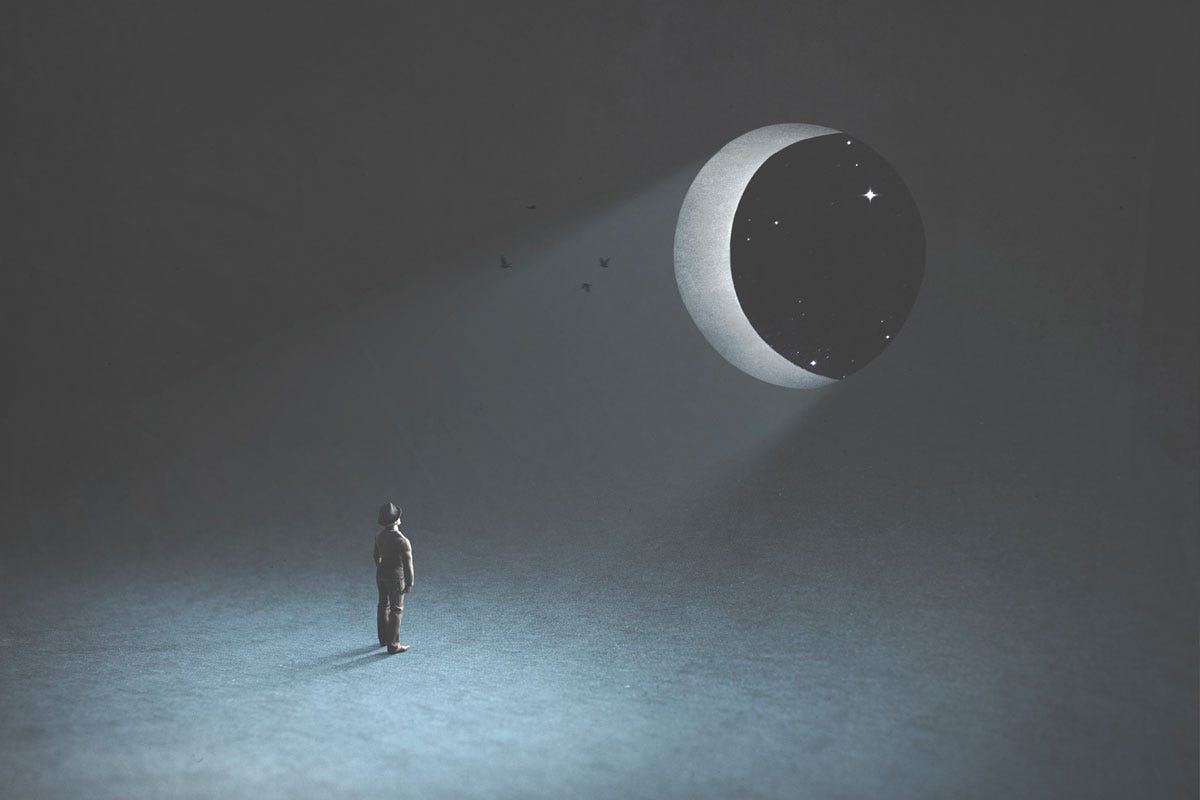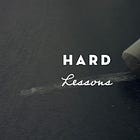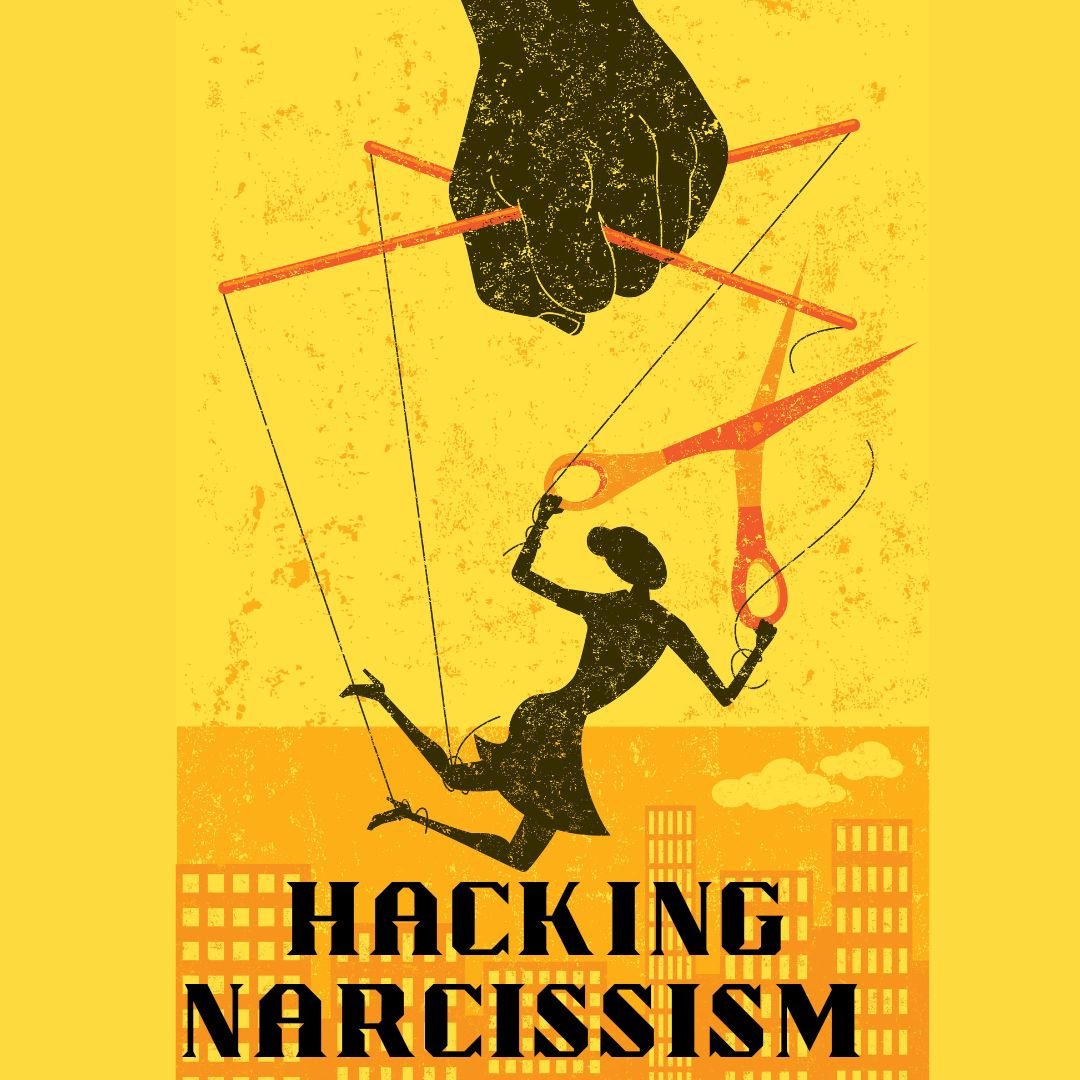Guest Post by Margaret Anna Alice

“Give me a story that just makes me unreasonably vigilant. Keep me up till five only because all your stars are out, and for no other reason.”
* * *
“Do you know what you will be asked when you die? … I’m so sure you’ll get asked only two questions. Were most of your stars out? Were you busy writing your heart out? If only you knew how easy it would be for you to say yes to both questions. If only you’d remember before ever you sit down to write that you’ve been a reader long before you were ever a writer. You simply fix that fact in your mind, then sit very still and ask yourself, as a reader, what piece of writing in all the world Buddy Glass would most want to read if he had his heart’s choice. The next step is terrible, but so simple I can hardly believe it as I write it. You just sit down shamelessly and write the thing yourself. I won’t even underline that. It’s too important to be underlined.”
—Seymour, J.D. Salinger’s Raise High the Roof Beam, Carpenters and Seymour, an Introduction (Kindle, hardcover, paperback, mass market paperback)
J.D. Salinger was my favorite author while I was in high school. I read everything ever published by him, including short stories only available in periodicals I tracked down and photocopied at the library.
Before Salinger’s death, David James Duncan confided in me that Matt Salinger had told him about the safes’ full of writings his father had been laboring over for years, with the ones ready for publication marked with a red dot. His sister, Margaret Salinger, similarly attested to this in her less-than-flattering portrait of her father in Dream Work (a view Matt does not share).
Although Salinger died in 2010, those works have still not been released. As Matt shared in this 2019 Guardian interview, he and Salinger’s widow, Colleen O’Neill, are “going as fast as we freaking can,” adding:
“It’s not ready. He wanted me to pull it together, and because of the scope of the job, he knew it would take a long time. This was somebody who was writing for 50 years without publishing, so that’s a lot of material. So there’s not a reluctance or a protectiveness: when it’s ready, we’re going to share it.”
Feeling disgruntled with the publishing industry and appalled by the desecration of his short story “Uncle Wiggily in Connecticut” in the film adaptation My Foolish Heart, Salinger stopped publishing after Hapworth 16, 1924 appeared in The New Yorker in June 1965, and he prevented all future film adaptations of his work.
Matt explained:
“He just decided that the best thing for his writing was not to have a lot of interactions with people, literary types in particular. He didn’t want to be playing in those poker games.”
Salinger was perfectly content writing for himself and inhabiting his fictional landscape populated by the Glass family and other characters we have yet to meet. He had found congruence, which Todd Rose summarizes in Collective Illusions as:
“When you are living congruently and according to your personal values, you experience more satisfaction with your life. You become happier.”
What Salinger lost out on, however, was the joyous fulfillment that comes when congruence serves the needs of others. This is what Confucius calls cheng (诚), which Rose describes as that “which combines personal congruence—or being in harmony with oneself—with our obligations to others.”
In The Concept of Cheng and Confucian Religiosity, Wenyu Xie writes in a footnote:
“The translations of cheng vary, to name a few: honesty, sincerity, reality … Ames and Hall, on the other hand, translate it as ‘creativity.’”
Xie elucidates:
“Linguistically, cheng conveys a disposition or an attitude of being honest, sincere, truthful, and real with oneself. Most English translators use ‘sincerity’ for cheng. In English, ‘sincerity’ can be defined in the context of morality of a community. However, the Zhongyong employs the term cheng to refer to a disposition in which one is true to oneself.”
A junzi—which Xie describes as “a person who acts properly”—“depends on his own self to cultivate, yet his thought and decision must be in communication with the outside world, including ordinary people and sages of the past and future.”
Those who know me understand how much I prize integrity, both for myself and those I entrust with my friendship and respect. According to Xie:
“Morally, a sincere or honest person is a junzi as long as this person has an integrity regarding thoughts, speeches, and actions.… he will still be regarded as a junzi if he is in cheng ceaselessly. In Chinese literature, a description of junzi of this type is the well-known comparison of a lotus coming out of mud without being contaminated.”
The lotus analogy could be likened to the Christian concept of being in the world but not of the world.
It seems Salinger decided to withdraw his lotus from the world rather than continue subjecting it to the mud-drenched publishing industry. But in doing so, he also removed it from the water and sunshine of his readers, which could have accelerated its growth and enhanced its beauty.
I can’t help but wonder what Salinger would have made of Substack, where the exploitative publishers, advertisers, and agents are stripped out of the equation and writers can connect directly with readers. Imagine if all those squirreled-away stories had instead been proffered in real-time to faithful readers, who would have had the opportunity to express their appreciation to him personally.
Would Salinger, like me, have transcended congruence to find cheng?
As I told Substack cofounder
:
“Substack has changed my life in previously inconceivable ways over the nearly three years I have been here. I have documented a tiny fraction of those milestones in past Stackiversary posts, but the most important ways are intangible.

My One-Year Substack Anniversary! + In Five Years (a Short Story)

My Two-Year Stackiversary: Lattice of Coincidence + The Courage to Face the Truth
“Substack has enabled me to attain what I believe to be the secret to a joyful life of purpose: congruence.
“As Carl Jung says, ‘The privilege of a lifetime is to become who you truly are.’”
I then shared Rose’s description of cheng and said that “is what Substack has made possible for me and so many others.”
Most people sleepwalk through life like hypnotized automatons, programmed by social engineering and propaganda while being scarcely conscious of their interior world, much less their own unpolluted, unscripted thoughts. As Erik Rittenberry writes in The Ultimate Return:
So much of our passing lives
are spent drifting along
on the surface
of our everyday consciousness
hiding behind the social
mask, too frightened
to take the necessary
plunge into the abyss of
ourselves.
Not only have you, beloved readers, empowered me to pierce the surface of that everyday consciousness, but you have liberated my muse, who had been chained up for decades while I sublimated my creative drive to the needs of others as a matter of survival. I felt my soul was suffocating with each suppressed inspiration, and I now lament all the years I wasted neglecting my purpose in life, or what Jung describes thus:
“He must obey his own law, as if it were a daemon whispering to him of new and wonderful paths.”
While my muse is a slavedriver who respects neither sleep nor obligation, she gives me words, insights, and pattern-recognition abilities others find valuable, and that fills me with boundless gratitude.
Knowing this purposefulness extends far beyond my tiny self deepens this thankfulness even further, especially when people I love and respect reach out to let me know they felt inspired by my example to pursue their own passionate purposes.
After reading Hard Lessons and watching the video, the lovely Nathalie Martinek wrote me the following email, which I am sharing with her permission as one such example:
Beautiful Margaret Anna Alice,
I finally had the chance to read through some of your recent posts and your most recent one about mentors hit me deeply. I wrote this in the comments:
“I can’t describe how deeply your poem hit my soul. It made me feel sad that I never encountered such a mentor. The closest is my father who refuses to bow to any authority and has no problem speaking his mind.
“My other mentors, mostly men, are truthtellers and have integrity in spades, demonstrating courage to speak the elephant in the room, challenge authority, say NO and not acquiesce to ridiculous demands.
All the women mentors in my life required submission and were destructive in their leadership. Interesting.”
—
What I’m realising now is that new mentors/models have come into my life who are leading and participating in the charge in restoring power to citizens and being joyfully disobedient. As much as I advocate for truth seeking, I don’t advocate as much for truth telling and that’s because I’ve allowed tyranny to intimidate me. I worry about the impact on my teens and family peace if I increase the intensity of what I really want to say. But through your work and some others, I’m seeing how it’s done in a way that also aligns with my values – integrity, respect, accountability and compassion.
So just as I’ve promised to do more videos … I’m making a promise to be a truth teller about topics that matter to me in my own effort to contribute to the collective compendium on liberty and liberation from conditioned and real oppression. I can’t thank you enough for the inspiration your work and energy has gifted me personally. I’m outspoken in my day to day and now to translate that into my virtual world too.
Thank you for blazing a trail for some of us late bloomers.
I hope you continue to have support of all kinds to keep doing your thing too.
You: “Warm hugs, and here’s to a liberating 2024!”
It sure is!
Big hugs to you,
Nathalie

Hard Lessons

Hard Lessons (Video) + What Is the Alchemy of Moral Courage?
Nathalie’s warmth, wisdom, and wonderfulness shine through her emancipating writings at Hacking Narcissism, which everyone can benefit from reading on both a personal and societal level.
One of my treasured readers, David St. Germain, emailed me a heartening note the other day. I asked his permission to share it with you. His message indicates my Substack is fulfilling the aspirations I outlined in Letter to My Karass, providing further evidence of cheng from the reader’s perspective:
“Although we barely know each other, I care about you greatly. You are one of the original half-dozen writers I discovered from alternate media sources during the scamdemic who were beacons of hope. You especially inspired me to trust my intuition, bolstered my resolve to resist, and expanded my appreciation of the written word’s power. To me, your work was immeasurably valuable. Your prose reminds me of Paul Revere’s alarm of awakening, of Thomas Paine’s invigorating eloquence, and Longfellow’s poetry.”

Letter to My Karass
Contemplating his terminal cancer diagnosis in My Own Life, Oliver Sacks—known as “The Cherub” in our household—wrote in February 2015:
“It is up to me now to choose how to live out the months that remain to me. I have to live in the richest, deepest, most productive way I can.…
“I am a man of vehement disposition, with violent enthusiasms, and extreme immoderation in all my passions.
“Over the last few days, I have been able to see my life as from a great altitude, as a sort of landscape, and with a deepening sense of the connection of all its parts. This does not mean I am finished with life.
“On the contrary, I feel intensely alive, and I want and hope in the time that remains to deepen my friendships, to say farewell to those I love, to write more, to travel if I have the strength, to achieve new levels of understanding and insight.
“This will involve audacity, clarity and plain speaking; trying to straighten my accounts with the world. But there will be time, too, for some fun (and even some silliness, as well).
“I feel a sudden clear focus and perspective. There is no time for anything inessential. I must focus on myself, my work and my friends. I shall no longer look at ‘NewsHour’ every night. I shall no longer pay any attention to politics or arguments about global warming.…
“There will be no one like us when we are gone, but then there is no one like anyone else, ever. When people die, they cannot be replaced. They leave holes that cannot be filled, for it is the fate—the genetic and neural fate—of every human being to be a unique individual, to find his own path, to live his own life, to die his own death.
“I cannot pretend I am without fear. But my predominant feeling is one of gratitude. I have loved and been loved; I have been given much and I have given something in return; I have read and traveled and thought and written. I have had an intercourse with the world, the special intercourse of writers and readers.
“Above all, I have been a sentient being, a thinking animal, on this beautiful planet, and that in itself has been an enormous privilege and adventure.”
It does not require a terminal diagnosis to experience this epiphanic awareness of what truly matters and to live our lives accordingly. All of us are, ultimately, terminal, and it is never too soon to pursue our innermost calling, even if it only starts with taking a few steps a day toward your fully realized self.
As another Oliver—Mary—writes in The Summer Day:
Doesn’t everything die at last, and too soon?
Tell me, what is it you plan to do
with your one wild and precious life?
In his July 2015 essay My Periodic Table, Sacks shared:
“A few weeks ago, in the country, far from the lights of the city, I saw the entire sky ‘powdered with stars’ (in Milton’s words); such a sky, I imagined, could be seen only on high, dry plateaus like that of Atacama in Chile (where some of the world’s most powerful telescopes are). It was this celestial splendor that suddenly made me realize how little time, how little life, I had left. My sense of the heavens’ beauty, of eternity, was inseparably mixed for me with a sense of transience—and death.…
“I have been comforted, since I wrote in February about having metastatic cancer, by the hundreds of letters I have received, the expressions of love and appreciation, and the sense that (despite everything) I may have lived a good and useful life. I remain very glad and grateful for all this—yet none of it hits me as did that night sky full of stars.”
All of Oliver’s and Mary’s stars were out, and the shimmering radiance of their words will continue to powder the skies of our consciousness as long as there are observers left to wonder at them.
Tell me, dear readers, are all your stars out? What is it you plan to do with your one wild and precious life? What will you begin doing today to find your cheng and live each remaining moment with exuberant purpose and gratitude?
Watch this to reignite your wonder at the sacred majesty of nature and your place in it.
Do You Have My Back?
“Nothing happens to anybody which he is not fitted by nature to bear.”
—Marcus Aurelius
I previously shared my experience of recovering from a back injury. I thought I was on the mend, but several new layers of excruciating pain have since emerged, the worst being frequent back spasms that feel like a charley horse but last much longer. I don’t want to bore you with the details as it feels self-indulgent and certainly antithetical to Stoicism to dwell on them, but I will share a few things I’ve learned in the hopes that they can help you.
I finally feel like I’ve turned a corner just within the past day, thanks to the magic of aspirin; supplements like InflamEase, magnesium glycinate, and electrolytes; walking; strengthening exercises like body squats; a heating pad paired with a rigid back brace; CBD; and a painkiller that helped me through the worst spells.
For those who are suffering from chronic pain or illnesses, I want to recommend Dr. John Sarno’s books, which I listened to after the fantabulous Jenna McCarthy said Healing Back Pain enabled her to end years of recurring back pain. The Divided Mind represents the culmination of his research on mindbody disorders and provides recommendations for rewiring your brain to overcome chronic pain resulting from tension myositis syndrome (TMS), which he believes accounts for most episodes of back pain, even those attributed to structural abnormalities like herniated discs.
Perfectionists (me), overachievers (me), and “goodists” who spend their lives serving others (Too Nice Syndrome—not me 😆) are the most likely to suffer from this stress-related condition, which is physiological in nature but psychological in origin. Sarno says the brain intentionally inflicts physical pain by depriving cells of oxygen (observable under electron microscopy) to distract you from repressed emotions like rage residing in the unconscious. The brain will use external factors like an injury (which I experienced) to trigger TMS under the guise of a rational explanation.
Just as propaganda literacy enables you to see through the propagandists’ attempts to manipulate your mind, so does understanding your brain is employing this trickery empower you to defuse the pain. You can call it out in the moment (I literally started yelling, “Stop!” every time my back spasms, and sometimes it actually works; you have to be assertive because this part of your brain is like an irrational toddler and only responds to firm commands). You may be able to end the pain entirely by integrating Sarno’s lessons over time and addressing the underlying emotional causes (e.g., through journaling, psychotherapy, workbooks, and TMS programs). For those who have suffered from chronic pain and syndromes like fibromyalgia for years, this represents a ray of hope that may be far more effective than the countless medical interventions already tried, which often have a temporary placebo effect but fundamentally fail because the underlying cause remains unaddressed.
If what I’ve learned over the course of this arduous experience helps just one of you liberate yourself from pain, it will help me wring meaning out of mine.
Meanwhile, I want to thank you for your patience with my slowed output during my recovery. I continue to chip away at my ambitious production schedule at every opportunity. If it’s too painful to stand at my workstation and type, I can dictate into my phone or listen to audiobooks for research. If I can’t do either of those, I can think about articles in progress and work through problems in my head. I have an ultra–high-level piece in the works that is requiring extensive in-depth research, and condensing thousands of pages’ worth of material into a single article takes considerable germination time as well.
I also want to do something I am very poor at doing: asking for help.
I feel vulnerable at this moment, not only physically but also financially. With the shift to MAA work, our income has shrunk considerably. When we did our taxes last year, our tax guy informed me, “Combined net income is down about 20000.” We were already making little enough to qualify for Obamacare, so there wasn’t much to spare to begin with—especially with inflation spiking and a bakers’ dozen of kitties to feed.
To exacerbate matters, I have lost a sizable number of paid subscribers over the past year or so—109 to billing failures alone.
Only 1.89 percent of my readers currently support me. We have no savings or safety net. I’ve never taken a single vacation day because there’s nothing I’d rather do than this work. Until my recent back injury, I had never gone a day without doing at least a little bit of MAA work and usually a lot, even if I was dealing with a migraine or some other health challenge.
It is my sincere desire to provide readers of this site with the best unbiased information available, and a forum where it can be discussed openly, as our Founders intended. But it is not easy nor inexpensive to do so, especially when those who wish to prevent us from making the truth known, attack us without mercy on all fronts on a daily basis. So each time you visit the site, I would ask that you consider the value that you receive and have received from The Burning Platform and the community of which you are a vital part. I can't do it all alone, and I need your help and support to keep it alive. Please consider contributing an amount commensurate to the value that you receive from this site and community, or even by becoming a sustaining supporter through periodic contributions. [Burning Platform LLC - PO Box 1520 Kulpsville, PA 19443] or Paypal
-----------------------------------------------------
To donate via Stripe, click here.
-----------------------------------------------------
Use promo code ILMF2, and save up to 66% on all MyPillow purchases. (The Burning Platform benefits when you use this promo code.)








I read Catcher in the Rye and basically just found it weird.
I did all the Western cowboy books, war books, science fiction books, fantasy books like the ‘Triliogy of the Rings’, horror books like King and lawyer books. Now I mostly read history books or historical fiction and 18th and 19th Russian literature, stuff like Tolstoy and Solokov. Imperial Russia had some great writers.
If “the readers” are “the water & the sunshine” you are an entertainer.
Entertaining is not a legit living, or way of being – particularly not for men.
But like fiat “money,” illegit is everywhere awash … lathering … rinsing … repeating.
Salinger was a mensch. Eventually, he realized himself, that he was surrounded by un-mensch-ionables, & wrote for himself.
Setting the corpus up to be published post mortem might be an ointment fly.
But if that’s a capitulation/compromise to provide $ for his posterity, having actually nothing to do with “watery sunshine readers,” maybe making that posterity sweat for it is proof of mensch-concept, too.
So I stopped short. Not the elder Costanza move. The stop reading move. Didn’t go much beyond the self-serving C02-less, silk/plastic plants, assertion above.
(And substack resides, at discretion, on darpanet … same sort of discretion Salinger shut his door to.)
Stephen King showed up here recently. If you know a little about that one, & Salinger, you might know the difference between an entertainer & a man.
The audience-committee/ditor ouroboros … or the thing itself … which is already there, in there, or isn’t.
Audiencentience will/can’t probably n/ever grok it: the seat warmers will never hear the best music, or read the best poetry/prose ~ & probably wouldn’t/couldn’t recognize it, if they did ~ because the best do not lower themselves to entertain, to the entertainment-discovery machine.
Cue the fun, true, scene from Jerry McGuire. “You want me to dance!”
Entertainers are manipulators. So are entertained – who want to be manipulated.
That’s the key fulcrum scene: “Are you not entertained?!” Punctuated with hurled exclamation point swords. Max wasn’t an entertainer at that point.
Then the boss who owned him sat him down for a little mutual interest chat. And then, Max saw the entertainment light. Manipulation was “the way back.”
Cool flick. But not if childish things can’t be put away when the credits roll.
Max was a roman general. So back in reality, fuck Max. And then fuck the character again for dropping down to entertaining. Meta-matryoshka-entertaining?
And A Man Called Horse English Bob Aurelius was a Roman Emperor hiding out in other stoic mens’ robes. Fuck him, too.
The Au•relius alloy son, who murdered him, was less dishonest – until he wasn’t, became too a wannabe breaded-circus Geffentertainer.
Salinger was at Utah Beach, Battle of the Bulge, Hürtgen Forest. His Holden Caufield alter strafed & lampooned hilariously the Empire of Entertainers. And said/acted “Fuck ‘em.”
I’m impressed.